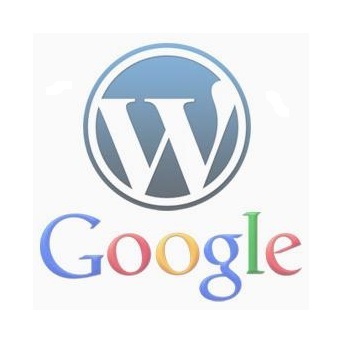If you’re not reviewing your WordPress SEO on a regular basis then it’s likely that your site is being negatively affected by Google Panda and Penguin updates and by outdated SEO practices.
There are three main areas that I would advise you to check out. Your websites Google search indexed content, backlinks and keyword density.
Duplicate indexed content, low quality backlinks, broken links and keyword stuffing can negatively affect your websites page rank commonly referred to as PR.
PR is very important because it now directly affects the quantity of high quality organic search traffic going to your site.
readmore
Tip: Google now says in their Analytics training information that PR is an important factor for having significant quantities of organic search traffic going to indexed pages.
Resolving WordPress Theme Canonicalization Redirect Issues:
Google is now very proactively indexing published website content which can be indexed in seconds for established websites. This indexing is not selective and therefore it’s important to protect the information that you don’t want to be viewed from being accessed by the search engine bots.
As Google updates its search engine policies it’s important to understand that existing WordPress Themes have to be reviewed and WordPress plugins updated or replaced.
Its likely that you will find issues with URL page/blog/author tag and archive content canonicalization and redirects. These Canonicalization and redirect problems can be located with a Google site:http//www.domain.com search.
Unfortunately webmasters have not always been able to completely resolve these issues and many plugins only provide partial solutions.
If you have canonicalization issues and have the SEO Ultimate plugin installed check your Canonicalizer Permalink Tweaker settings.
An alternative WordPress SEO plugin provides an effective canonicalization solution by adding code into header files which allows Google to identify the sites primary and derivative duplicate content.
WordPress SEO causes conflicts with SEO Ultimate therefore an alternative in this case would be to install Canonical URL’s by the same plugin author which doesn’t include the other SEO features that are included with WordPress SEO. This plugin will only resolve issues for single pages and posts.
Issues with “replytocom” redirects can be resolved with a WordPress plugin called Replytocom Redirector.
It’s important to use Google’s webmaster tools to proactively manage your site by updating and resubmitting your Sitemap.xml and robot.txt files. All content that you don’t want to be crawled by bots should be added into the robot.txt file disallow list.
Old URL content which has been removed from your site should also be removed from Google’s search engine listing. This can be done via the webmaster tools optimization Remove URL’s menu.
Resolving BackLink and Other Broken Link Issues:
Managing links is always an ongoing activity because websites are constantly being updated and changed resulting in broken links and 404 errors.
Google views on page links both internal and external as being an important factor in assessing site quality.
Links to external related category keyword sites have to be carefully managed to ensure traffic is not redirected away from your site content. Always use the target=”_blank” to open a new page for these links because Google evaluates the time visitors spend on your site and not having this option will otherwise exit your site when these links are selected.
Internal on page links to content which broaden the coverage of your keyword category content is perceived by Google as adding value. This would include adding a contextual embedded links for other site content which would otherwise be located in a drop down menu.
If you have already read my “Web Page Links, A Three Dimensional View” you will already understand that I prefer fewer higher PR links over link building larger quantities of lower value backlinks. This is in line with Google’s current linking practices.
Small numbers of PR3,PR4 and higher can greatly increase your site visitor traffic depending on the available demographic and local traffic associated with the keyword category.
The general consensus seems to be that the best way to obtain backlinks is organically through visitors who value your website content adding links into their own sites. Higher PR links can be developed through board posts and social network relationships
Commenting on relevant keyword category sites with a link to your content is always productive because regardless of if the site sets their link option to “no follow” a productive comment is likely to attract additional interest in your site.
The SEO concept that it’s inadvisable to have more than a hundred links per page is outdated. Google is unlikely to have issues with up to two or three hundred links as long as they are contextually relevant.
Keyword over Optimization issues:
Over optimization can have a negative affect on ranking and therefore with Keywords its quality not quantity that counts. Repeating the main category keywords in multiple headings and using multiple font options is likely to have Google discount the value of your site.
There should only be one h1 title tag per page and it’s very important for your website to have a relevant home page category keyword if you are competing for an existing category. For example if your site is selling a product the main category keyword for that product should be included in the h1 title tag for the site.
With WordPress you can have a short descriptive h1 on page or blog title and use your SEO plugin to add a longer more effective search engine title and meta text description. These titles can also be fine tuned for Twitter, Facebook and other social network links.
The order of the category keywords in the h1 title is less important than has been indicated by some SEO experts.
Published page URL permalinks should be short and not include unnecessary characters.
Image and banner “alt” text should contain keywords that are in context with the image description text. Repeated main category keywords should be avoided.
Subcategory keywords provide conformation for on page content. For these keywords like the main keyword they should be assessed and prioritized by the demographic and local/global value that they attract in context to the page content being presented.
Only a small number of keywords in order of their importance should be added into a meta keyword list.
On page keyword density should be well below four percent. Google typically lists content pages under a number of categories using the category keywords that are present in the domain name, permalinks, title and meta description or first 160 characters of the content first paragraph.
Successful rankings for long tailed keyword categories will translate over time into better rankings for shorter higher competition keyword categories.
SEO Update Summary:
The keyword, link/backlink and ranking basics are a perquisite for maintaining your websites visibility and relevancy.
As internet search continues to become more fragmented Google has had to adapt in order to retain and grow its advertizing revenue. The complexity and scope of Google SE algorithms is constantly being adapted to cope with these new realities.
Google’s current role-out of their new Analytcs desktop features, information and webinars paint a clear picture of how to monetize web activities by attracting high converting organic traffic into a sales funnel.
If your building a business on a budget then compliance is an issue where an unknown major infraction will lead to a significant loss of business over an extended period. Unfortunately the feedback necessary to quickly resolve these issues is never available.
Website page load times(preferably these should be under 4 seconds), quality of hosting and internal website structures all have the ability to affect PR and organic search traffic.
Sept.11 Update:I came across a valuable Google Analytcs Webinar on multichannel funnels last week via a product Analytics update email I received.
This is about marketing and paid search, however its real value is in its identification of peoples buying habits, the value of organic search and areas to improve your website to enhance your conversions. The Webinar embedded at the bottom of this post.
Feel free to contact me directly for additional detailed information on this subject.
Best Wishes,
Mark.
PS: I checked out my backlinks using traffic travis and found that a large number of my high PR links were no follow. I was also able to find other organically added high PR links using the SEO page analyze feature and to locate new backlinks with their link finder.
Phew! I can’t believe how easy it was with traffic travis and better yet my page view numbers were tripled in only a few hours… PPS: Updating some content with update services pings also helped.
Click here to learn more




![Validate my RSS feed [Valid RSS]](http://mark-jago.com/wp-content/uploads/2011/11/Validrss.gif)
